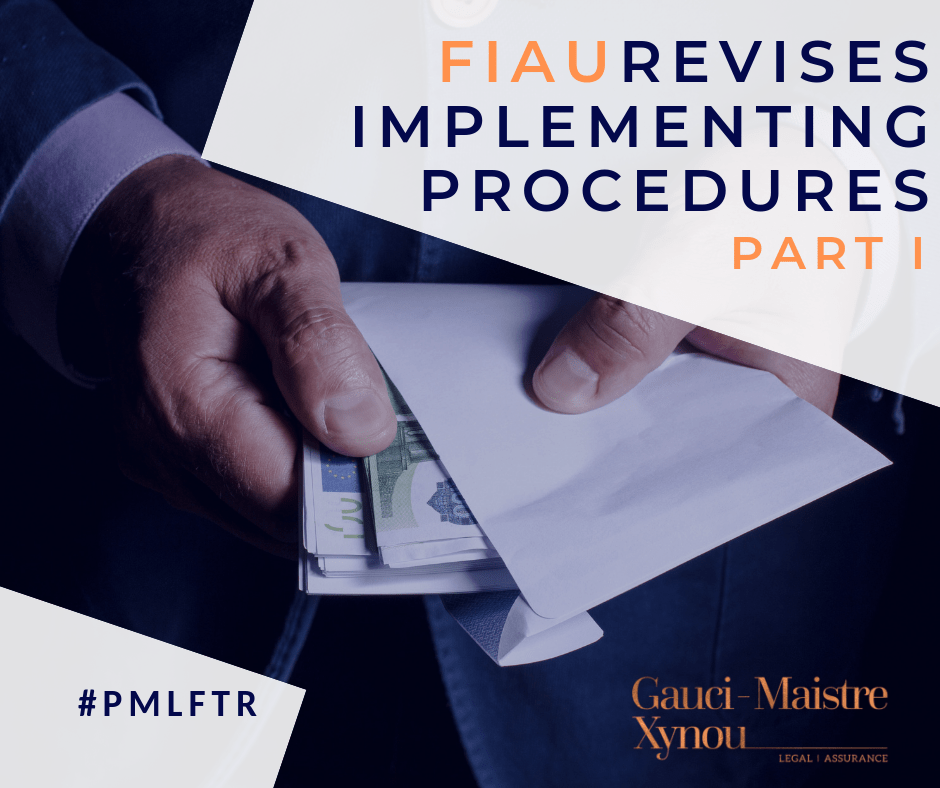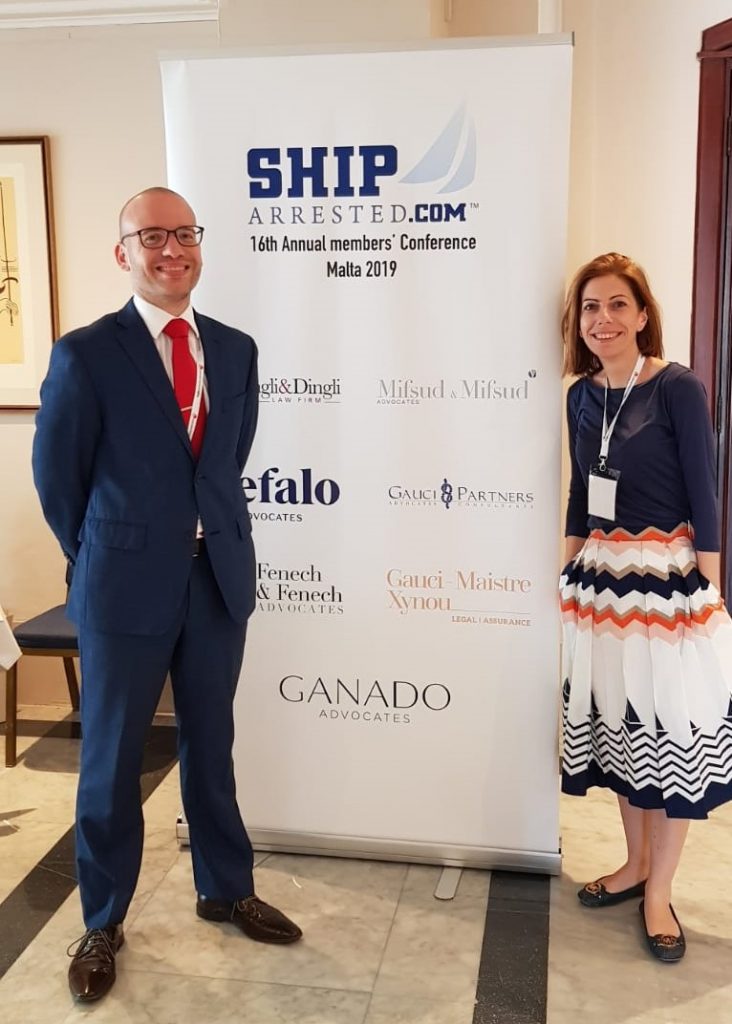Breaching public procurement rules axes fast-ferry tender
Court Case: Virtu Holdings Ltd v Gozo Channel Island Ferry
September 2019
The Facts
On 26 January 2018, the Ministry for Transport and Infrastructure issued the “Request for proposals for a Public Service Concession Contract for the provision of passenger and vehicle ferry services between Malta and Gozo”. The request for proposals comprised transport services for passengers and vehicles between Cirkewwa and Imgarr, Gozo, by means of a conventional ferry and for the service of passenger transport between Valletta and Imgarr and other localities in Malta by means of a fast ferry.
On 9 February 2018, Gozo Channel (Operations) Limited issued the “Preliminary Market Consultation” with an invitation to economic operators to make their offers. Virtu Holdings Limited and Islands Ferry Network Limited participated in this offer.
By letter dated 13 April 2018, Gozo Channel (Operations) Limited informed Virtu’ Holdings Limited that its offer had not been accepted while Islands Ferry Network Limited’s offer had been accepted.
On 20 April 2018, Virtu’ Holdings Limited submitted an Objection to the decision of Gozo Channel (Operations) Limited in front of the Public Contracts Review Board (PCRB). The decision of the PCRB was appealed. [Virtu Holdings Limited (C30642) vs. Gozo Channel (Operations) Limited (C76704) u Islands Ferry Network Limited (C85742) ghal kull interess li jista’ jkollha l-Qorti ta’ l-Appell – Appell Numru 290/2018]* was appealed.
It also transpired that Gozo Channel (Operations) Limited signed an agreement with Islands Ferry Network Limited whereby the latter agreed to lease a fast ferry to Gozo Channel (Operations) Limited should Islands Ferry Network Limited be awarded the agreement.
The application submitted to the Public Contracts Review Board
In view of the above, on 22 June 2018, Virtu’ Holdings Limited filed another application before the PCRB, under Regulation 277 of subsidiary legislation 174.04, stating that the agreement between Gozo Channel (Operations) Limited and Islands Ferry Network Limited should be declared ineffective. On 11 September 2018, the PCRB decided that it was not necessary to declare the agreement ineffective arguing that the suspensive condition of the agreement did not occur yet and that therefore the agreement was:
“[…] in actual fact not effective at present, as it will only come into force subject to Gozo Channel winning the award of the PSO Tender.
At the same instance, the Board notes that the Gozo Channel has in fact concluded a contract before a final decision has been given by the Public Contracts Review Board, however, due to the fact this board deems that he Agreement Is not effective at present and is operative only on condition that Gozo Channel wins the PSO Tender, this Board does not deem it necessary to declare it ineffective in terms of Regulation 277 of the Public Procurement Regulations”.
The decision of the Court of Appeal
The decision was appealed (Virtu Holdings Limited (C30642) vs. Gozo Channel (Operations) Limited (C76704) u Islands Ferry Network Limited (C85742) ghal kull interess li jista’ jkollha Appell Numru 292/2018) *,
The Court of Appeal rejected all the preliminary pleas of the defendant company for the same reasons and motivations in the decision Virtu Holdings Limited (C30642) vs. Gozo Channel (Operations) Limited (C76704) u Islands Ferry Network Limited (C85742) ghal kull interess li jista’ jkollha Appell Numru 290/2018 . With respect to the merits, the Court of Appeal held that it is not correct to state that an agreement with a suspensive condition is not conclusive yet and that it is inexistent. It is the obligation which is non-existent before the condition occurs, but when it occurs the effect will be ex tunc in terms of article 1061(1) of the Civil Code; the agreement will be existent and deemed conclusive as soon as there is the in idem placitum consensus. The Court added that the offer was accepted, the choice of who will render the service for a monetary value had been made and that the agreement was signed..
Therefore, the Court of Appeal concluded that once that the public contract by the contracting authority has been made, the appellant company Virtu’ Holdings Limited could avail itself of the remedy under Regulation 277 of Subsidiary legislation 174.04.
Interestingly, the Court of Appeal noted that the PCRB, by its own admittance had agreed that “Gozo Channel has in fact concluded a contract before a final decision has been given by the Public Contracts Review Board”. Therefore, through its own admittance, the PCRB was recognising the ineffectiveness of the agreement under the provisions of Regulation 277.
Therefore, the Court of Appeal upheld the appeal:
- Rejecting all the preliminary pleas;
- Revoking the decision of the PCRB; and
- Referred to the acts back to the PCRB for its decision.
Following the referral by the Court of Appeal (292/2018) as per decision dated 11 March 2019, the PCRB delivered its decision on 30 August 2019.
The Outcome
The PCRB referred to Regulation 277(3)(a)(b) wherein it is stipulated that:
“a) When, notwithstanding an appeal is lodged before the Public Contracts Review Board, the Authority responsible for the tendering process concludes the contract before a final decision is given by the Public Contracts Review Board, or
b) when the contract is concluded by a Contracting Authority or the Authority responsible for the tendering process before the expiry of the period for the filing of an appeal as provided for in Regulation 271”.
The PCRB confirmed that Gozo Channel (Operations) Limited is to be considered as a contracting authority and that Gozo Channel (Operations) Limited entered into contractual obligations with Island Ferries prior to a final decision by the PCRB.
Regarding the “ineffectiveness” of the contract signed between Gozo Channel (Operations) Limited and Island Ferries Limited, the PCRB referred to Regulation 277(3)(a) whereby any tenderer may also request the PCRB to declare a contract ineffective when notwithstanding an appeal is lodged before the PCRB, the contracting authority responsible for the tendering process concludes the contract before a final decision is given by the PCRB. Therefore, the PCRB confirmed that Gozo Channel (Operations) Limited did enter into a contractual obligation on the 13 April 2018, well before any decision was taken by the PCRB. The PCRB referred also to Regulation 282(b) whereby applications for the ineffectiveness of a contract shall be deemed admissible if they are made in any other case before the expiry date of a period of at least six months with effect from the day following the date of the signing of the contract.
The PCRB decided that the application for the ineffectiveness of the contract signed between Gozo Channel (Operations) Limited and Island Ferries Limited is within the stipulated time frame of the Public Procurement Regulations and that therefore the agreement entered between Gozo Channel (Operations) Limited and Island Ferries Limited was concluded prior to the final decision of the PCRB and to this effect, the PCRB declared that the agreement is ineffective.
The GMX Commentary
This decision has confirmed the principle of “ineffectiveness” of a public contract which is not restricted through any conditional clause in the agreement; in this case a suspensive clause. The Court of Appeal re-affirmed the principle that if the agreement is still concluded despite pending proceedings before the PCRB, then the agreement is tantamount to an “ineffective” agreement in terms of the Public Procurement Regulations, which reflect the EU’s Remedies Directives. To this effect, the aggrieved bidder, Virtu’ Holdings Limited, could avail itself of the remedy under Regulation 277 of Subsidiary legislation 174.04, whereby an interested party or a tenderer may file an application before the PCRB to declare that a contract with an estimated value which meets or exceeds the threshold established under Schedule 5 of the Public Procurement Regulations is ” ineffective”.
Furthermore, in terms of the said Regulation 278, apart from the declaration for the ineffectiveness of a contract the applicant may request the PCRB to liquidate and order the authority responsible for the tendering process and the contracting authority to compensate him for actual damages suffered.
If the PCRB declares a contract to be ineffective, it should impose penalties on the authority responsible for the tendering process and on the contracting authority after assessing in its decision all relevant factors, including the seriousness of the infringement and the behaviour of those authorities. In this case, no penalties were imposed by the PCRB.











